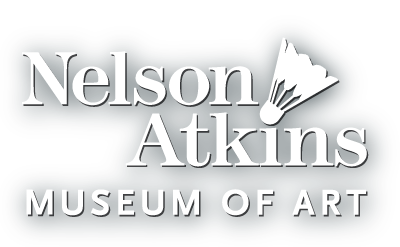Heddle Pulley
CultureGuro peoples
Date20th century
MediumWood
DimensionsOverall: 6 × 2 × 1 3/4 inches (15.24 × 5.08 × 4.45 cm)
Credit LineBequest of Donald D. Jones
Object number2001.3.163
On View
Not on viewCollections
Gallery LabelThis elegant form once served as a pulley suspended from the frame of a treadle loom. It represents the refined aesthetic and skilled carving associated with the arts of the Guro and neighboring Baule peoples. Guro and Baule weavers commissioned carved pulleys, such as this human head combined with geometric patterning, in a variety of forms. They functioned as part of the loom but also embellished it, serving as public advertisement for the woodcarver's skills. During the weaving process, heddle pulleys move from side to side in a rhythmic motion with each sweep of the weaver's shuttle.
With J. J. Klejman (1906-1995), New York, by 1974 [1];
Purchased from Klejman by Donald D. Jones (d. 2000), Kansas City, MO, by 1974-2000 [2];
His bequest to The Nelson-Atkins Museum of Art, Kansas City, MO, 2001.
NOTES:
[1] J. J. Klejman closed his gallery and retired in 1974. See “Oral history interview with Susanne K. Bennet,” RG-50.106.0195, United States Holocaust Memorial Museum, Washington, DC, https://collections.ushmm.org/search/catalog/irn46546 , last accessed November 30, 2021.
[2] NAMA Archives, Chief Curator Records, RG 16, Box 3, Folder “Last Will and Testament – Donald Jones,” Exhibit A to the Donald D. Jones Art Trust, December 10, 1996.
Information about a particular artwork or image, including provenance information,
is based upon historic information and may not be currently accurate or complete.
Research on artwork and images is an ongoing process, and the information about a
particular artwork or image may not reflect the most current information available to the Museum.
If you notice a mistake or have additional information about a particular artwork or image,
please e-mail provenance@nelson-atkins.org.
2013.47.15
2013.47.6














